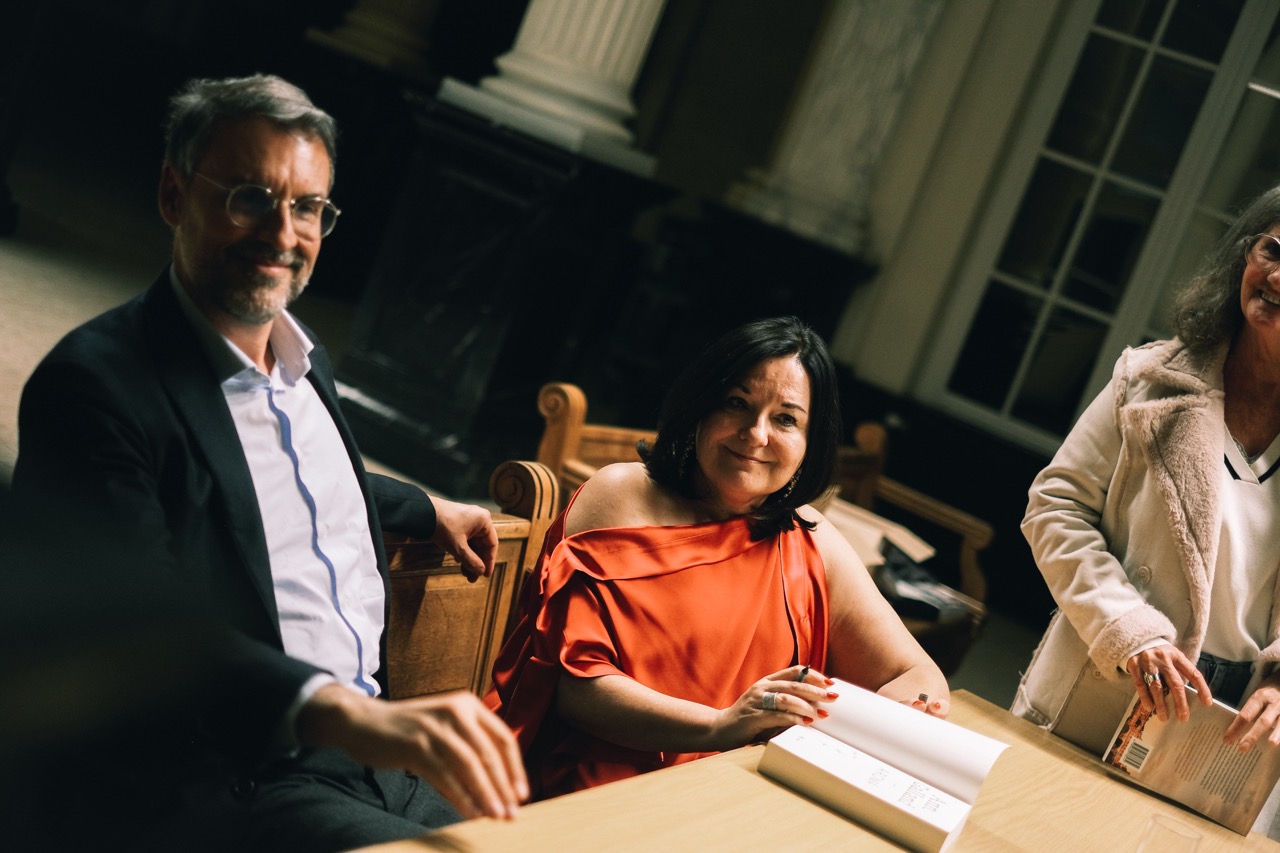Thursday 7 November 2024 is a day we will not easily forget. With the official presentation of our novel Het Vijfde Testament (Il Quinto Testamento), we wrote history in the beautiful Ghent Court of Appeal. A unique place – one has rarely access to – became the setting of the main introduction event of our first “quatre-mains”.
The setting – Oud Gerechtsgebouw Gent

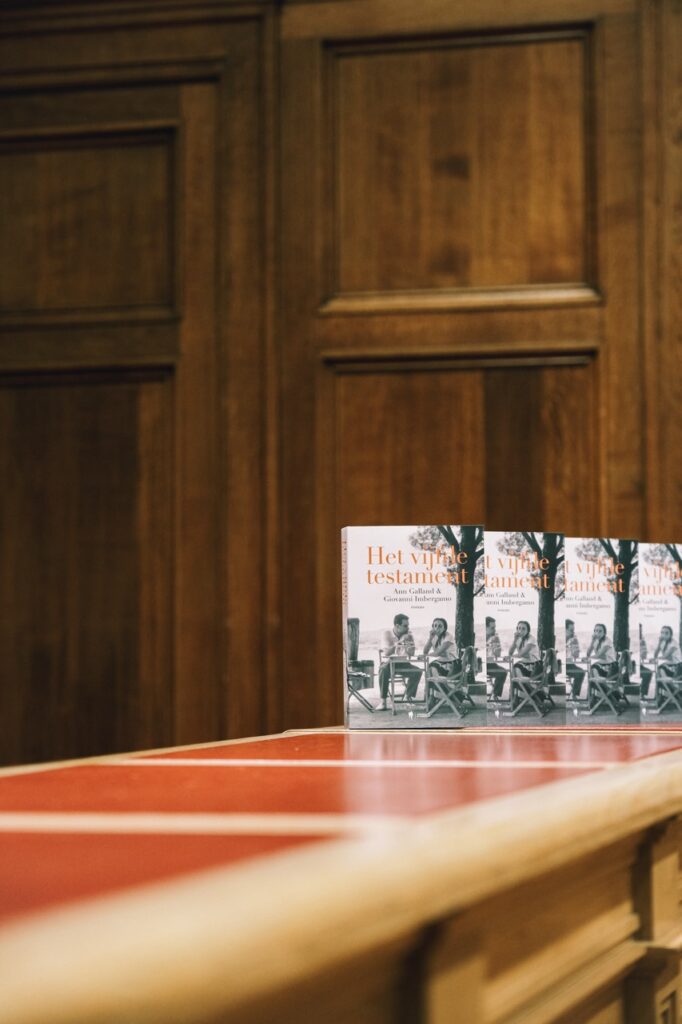
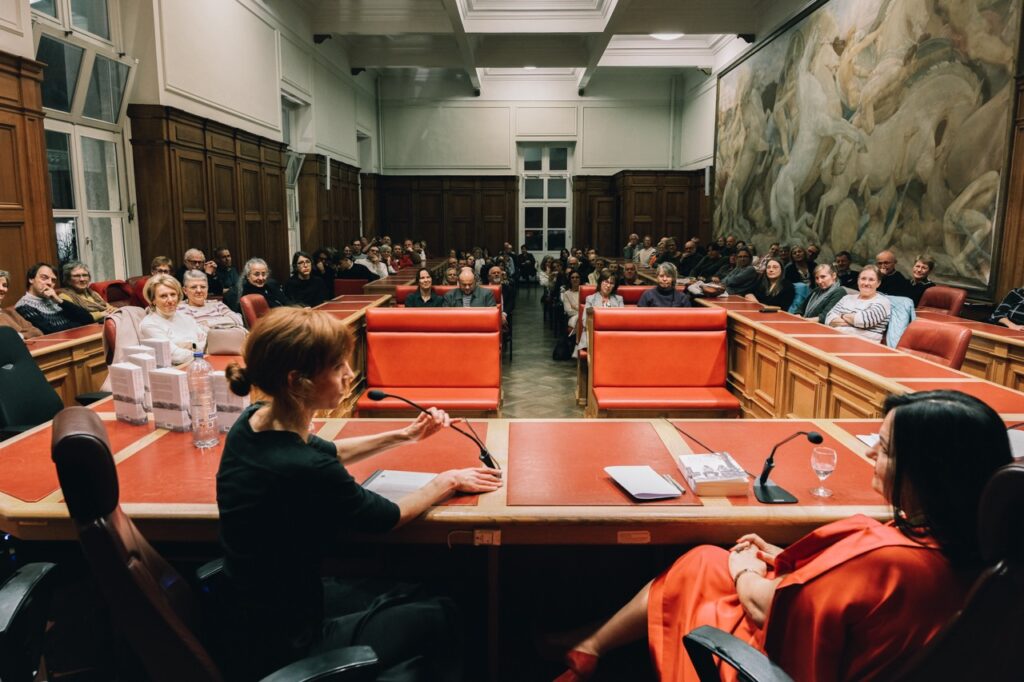

The interview
We were interviewed by Sarah Logghe, and this is mainly what we talked about (excerpts):
Ann, you wrote two successful novels with an endless range of excellent reviews. Why did you feel it was necessary to write together with a co-author for your third novel?
Ann: There is an ancient African proverb that says: “if you want to go fast, go alone; if you want to go far, go together.” And that is mainly what writing in two is about: you have a companion with whom you can share your thoughts and your ideas, your uncertainties and your doubts… and most importantly together you can create a story that supersedes your individual imagination. In addition, I am curious by nature; so I like to try out new things.
Giovanni: When we first met in Rome in 2019, we quickly realized that we both loved literature, and we started sharing books. Ann was working at Aroma at that time, and she was telling me about the research she was doing on the differences between Belgium and Italy. She was comparing the inheritance law between our two countries. For example, inheriting from a person that is not related to you, in Belgium is extremely expensive. Up to 70%. In Italy, however, it is only a fraction, not more than 8%. As a civil lawyer, I have dealt with a good number of inheritance cases, some of them beyond imagination in terms of complexity and strange human behaviour. So, we started to talk about Italian law and inheritance cases. And when Aroma was in a final stage, I became a proofreader of the passages that contained legal info, which Ann translated for me in Italian. Reading bits and pieces of Aroma, raised my interest in writing. Then about two years ago, when I talked to Ann about a complex case involving testaments, the idea to write a novel together arose quite spontaneously, and we realized that together we could come up with a very intriguing story!
Why was it important for you to work together with an Italian lawyer and not a Belgian lawyer, Ann? It would have been much easier, no?
Ann: At first sight, working with a Belgian would have been easier. In that case I could have written the book simply in Dutch, just like my previous ones. But I like writing about Italy and Italian places as the setting for my books. So, in that respect, writing together with a native Italian was a plus. And moreover, how good you get along with a co-writer does not depend on the language or the nationality you have in common. It mainly depends on the compatibility of characters, the goals and the vision you share.
Giovanni: I agree with Ann, sharing a vision is more important than coming from the same place. But in “Het Vijfde Testament”, which is mainly situated in Rome, you will also discover some connections with Belgium, and even Ghent, but at this point in time, I can’t disclose more. I was told to not give away the plot tonight. So for the time being, I consider this as highly confidential information.
Other writing duos see each other on a daily basis. Think Nicci French for example. You are often more than 1500 kms apart. How did you organize yourselves to write this book in only two years’ time?
Ann: We know how to plan, I guess. And we always looked for continuity. Writing as such, we did alone. Exchanging ideas and improving our texts, we did together, on a very steady pace. A few hours a week. In zoom conference or in person. Whatever worked best.
Giovanni: It was not that easy. My work sometimes made it difficult to plan meetings with Ann because regularly there were unforeseen circumstances that needed my immediate attention, such as urgent court orders or tax investigations. But yes, we looked for continuity on a steady pace. Ann is incredible at planning and organizing, characteristics that are not very common in Italy. When we finished after nearly two years, I thought … wow we did it!
That is how you worked together on a practical level, but how about the language? Giovanni you don’t speak Dutch I presume, so in what language did you write the book?
Giovanni: Ann thinks I understand some Dutch, and that I can hide it very well, because sometimes I was capable of predicting what she was going to amend or change in our texts. But our working language was Italian.
And you, Ann? Does that mean you wrote both the Dutch and the Italian version at the same time?
Ann: From day one, I kept the story aligned both in Italian and Dutch. So, one version is not a translation of the other. We always tried to think and move forward in the two languages at the same time. So, by the time the story was final, we ended up with two finalized manuscripts. And whether Giovanni understands a few frases in Dutch or not, will remain a mystery for now.

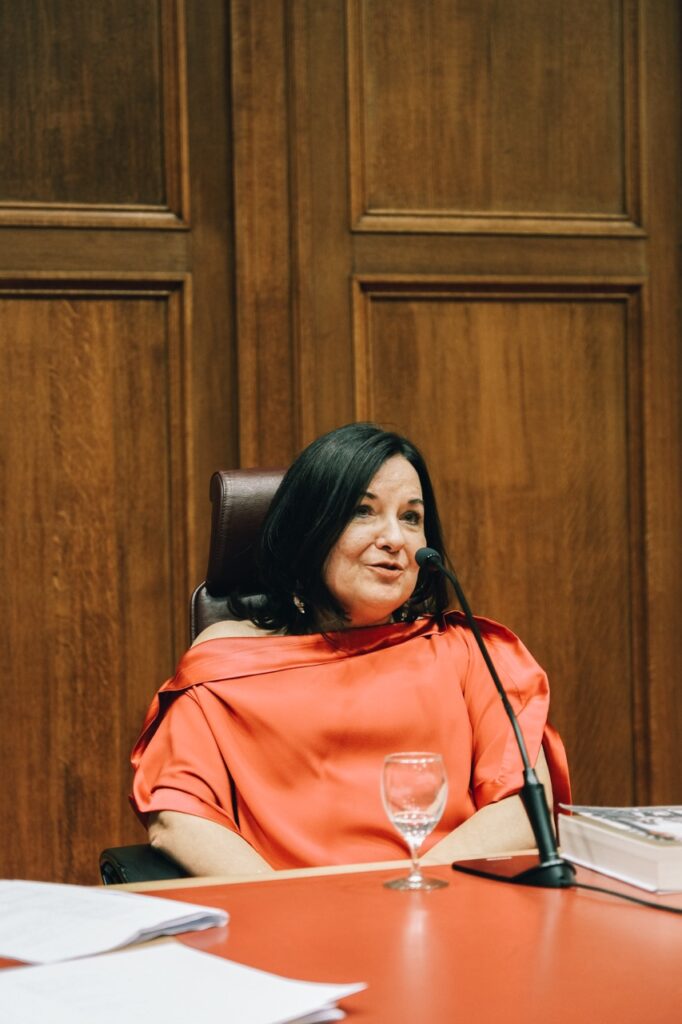


What did you like most in writing together?
Ann: Having a sparring partner on a variety of topics. Being able to share my enthusiasm about creating the story, because writing in general is a solitary job. As a bonus, I now understand much better how lawyers think and act.
Giovanni: I was surprised about the kind of “mental complicity” we had right from the start. It felt as if we had been writing together in the past. This is a rare gift, so to say.
Your book opens with a quote from Machiavelli “a man is quicker to forget the death of his father than the loss of his patrimony”. Why did you start the book with this quote?
Giovanni: Machiavelli was such an expert on human nature, not only on politics and history. I strongly recommend reading The Prince. What I like most about Machiavelli is his ability to focus on things the way they are, and not as they should be. What he wrote, is still very relevant today. In inheritance cases, I often see that the loss of a patrimony hits heirs much more than the death of their father or mother.
Ann: When wealth and money are at stake, the attitude or the behaviour of people can change overnight. And often for the worse. The death of parents has broken and will keep on breaking uncountable family ties all over the world. A certain kind of greediness or jealousy is inherent to the human nature. In the book we wanted to play with that reality, and the different types of reactions people have in dealing with the possibility of gaining or losing a huge patrimony.

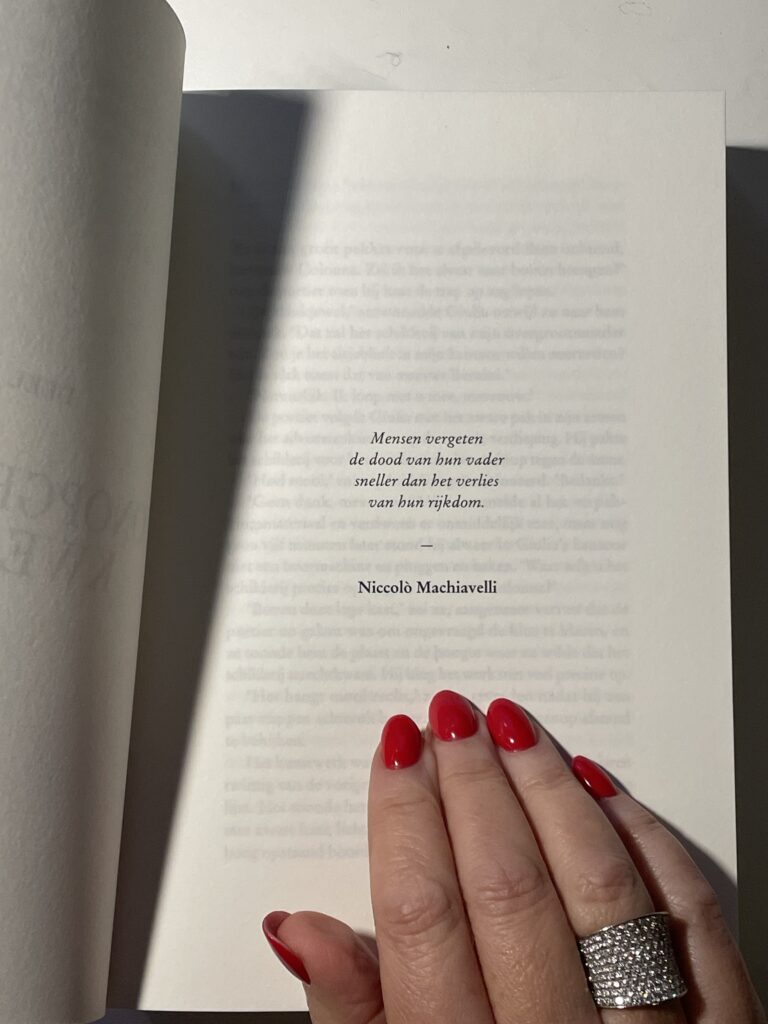
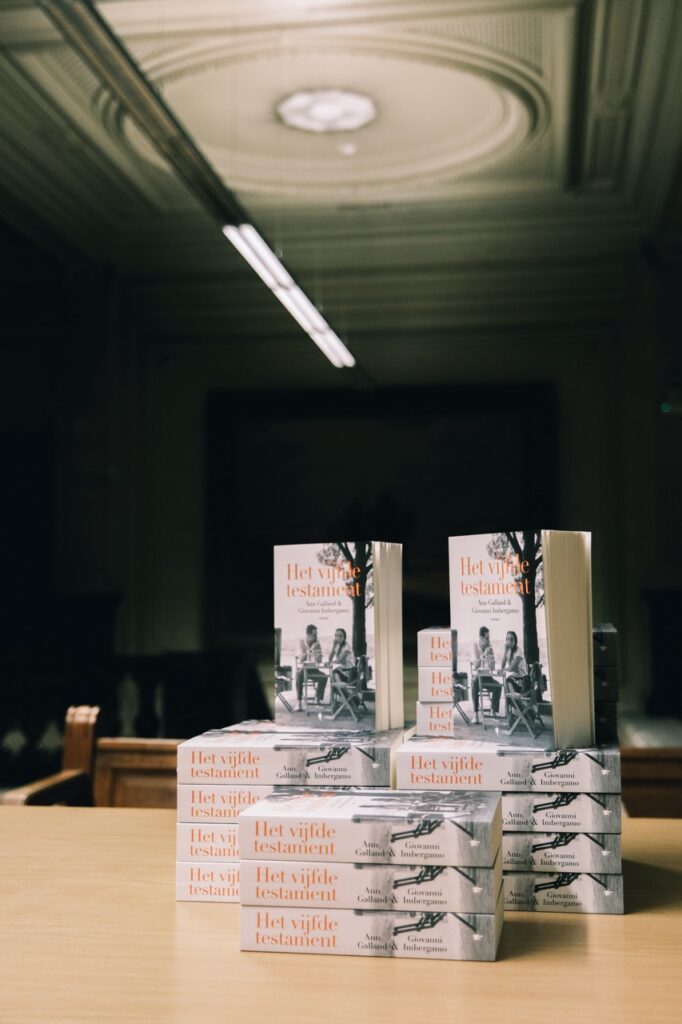
Giovanni, for you it’s your first novel. What means the cooperation with an established writer like Ann to you?
Giovanni: Without Ann, I couldn’t have written this novel. As a civil lawyer, I write legal papers for the Court, contracts and legal opinions, but writing a novel is more difficult because there are no laws or legal precedents as guidance. Writing a novel is much more creative. Ann often took me completely out of my normal comfort zone. To a certain extent, writing this novel for me was like going on an exciting new trip, crossing unknown borders. But at the same time, I felt comfortable because I had Ann at my side.
How much of Giovanni can we find in the main character of Giulia Colonna, who is a lawyer herself?
Giovanni: Very little. For a start, she’s a woman. And she has quite a character. I talk less and listen more than she does. In general, I behave in a less dangerous way… But since her office is just around the corner from mine, I meet her so now and then in my imagination.
How do you feel now the book is available in so many bookstores in Belgium and Holland?
Giovanni: It’s a new feeling for me. In the past, I published a non-fiction book on anti-money laundering matters. The experience of writing a real novel, fiction in other words, is different. It is an experience that is much more personal.
Ann: I feel a combination of happiness and hope. Happiness, because we accomplished our goal of writing the book we both believed in. Hope, because we want a bright future for our mental child, Giulia. Now it is up to the public to discover her and all the different situarions she gets involved in.
Are you already working on your next novel? Are there more books to be expected with Giulia as a main character?
Ann: Maybe, but we first want to enjoy and to celebrate the birth of this book.
Giovanni: Moreover, we must seek Giulia’s opinion in this matter. She has a very strong character and certainly wants to be heard before we take decisions for her. So, it will also depend on what Giulia says. I would rather not disagree with her.
Will it be translated soon?
Ann: We hope so. The Italian manuscript is ready.
Giovanni: Hope so too, so that I can finally read our book in my own language, since I don’t speak Dutch!
The reception

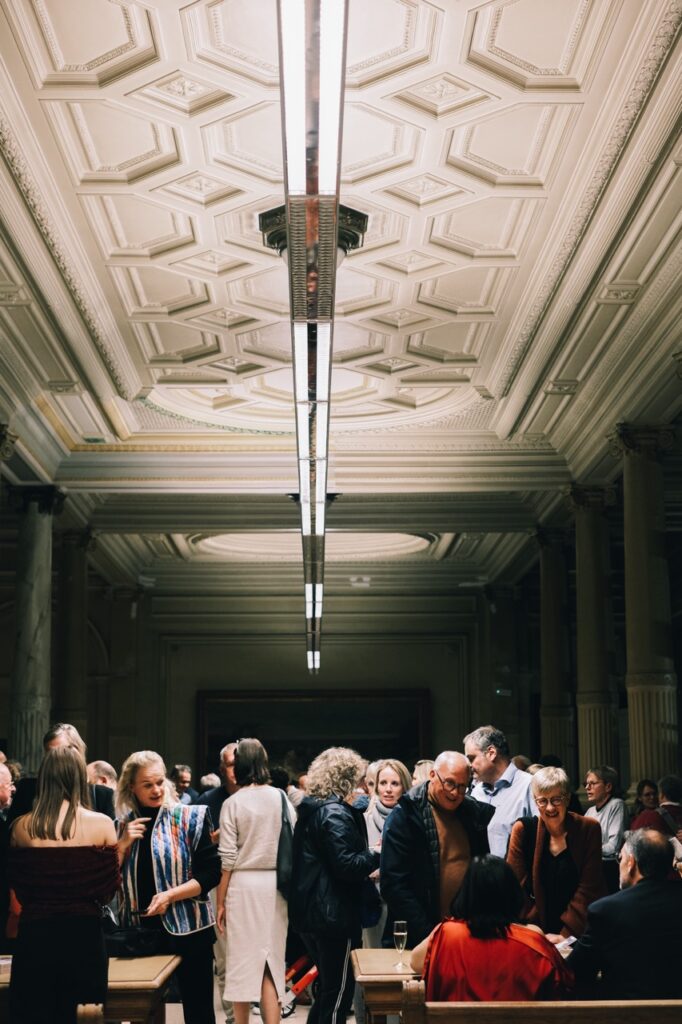



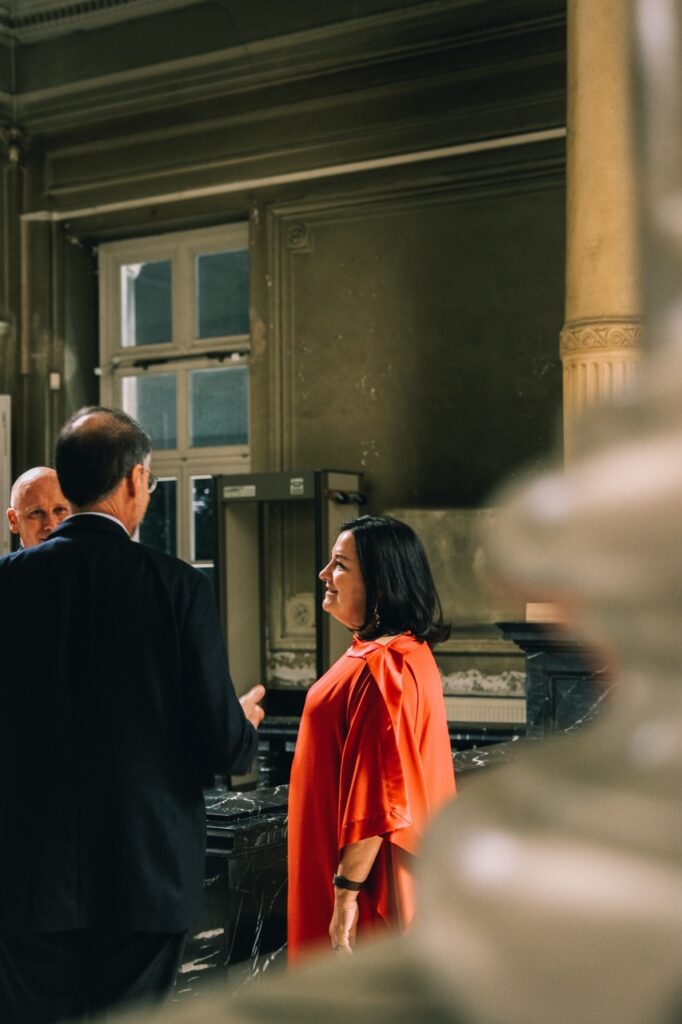

Signing our first “quatre-mains”
Meeting and re-uniting with so many friends from all over Flanders, The Netherlands,… and even Italy.
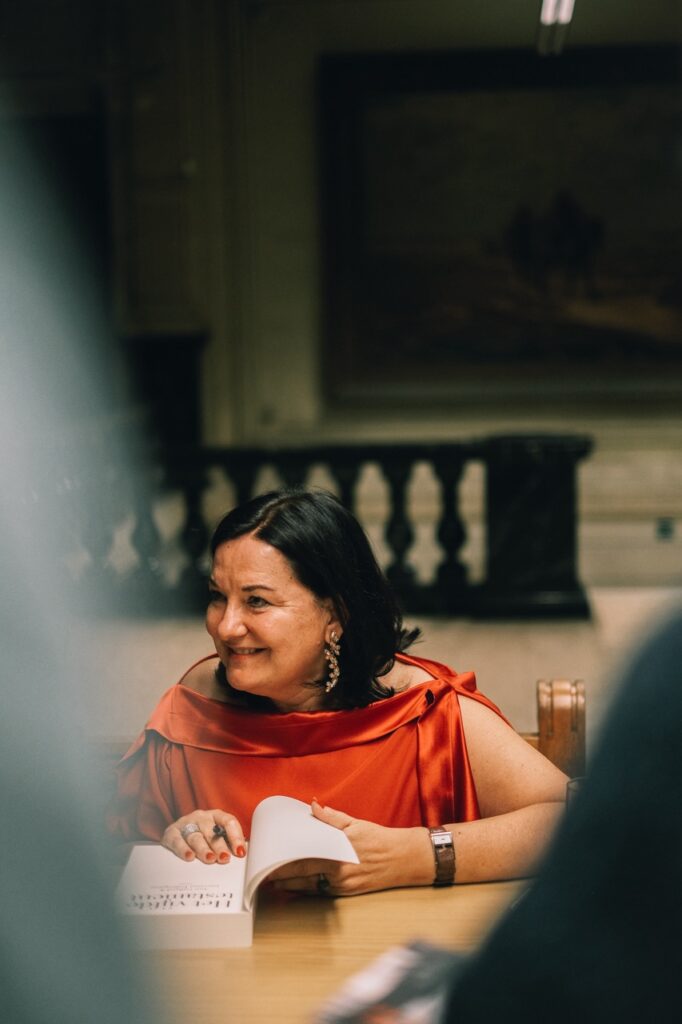
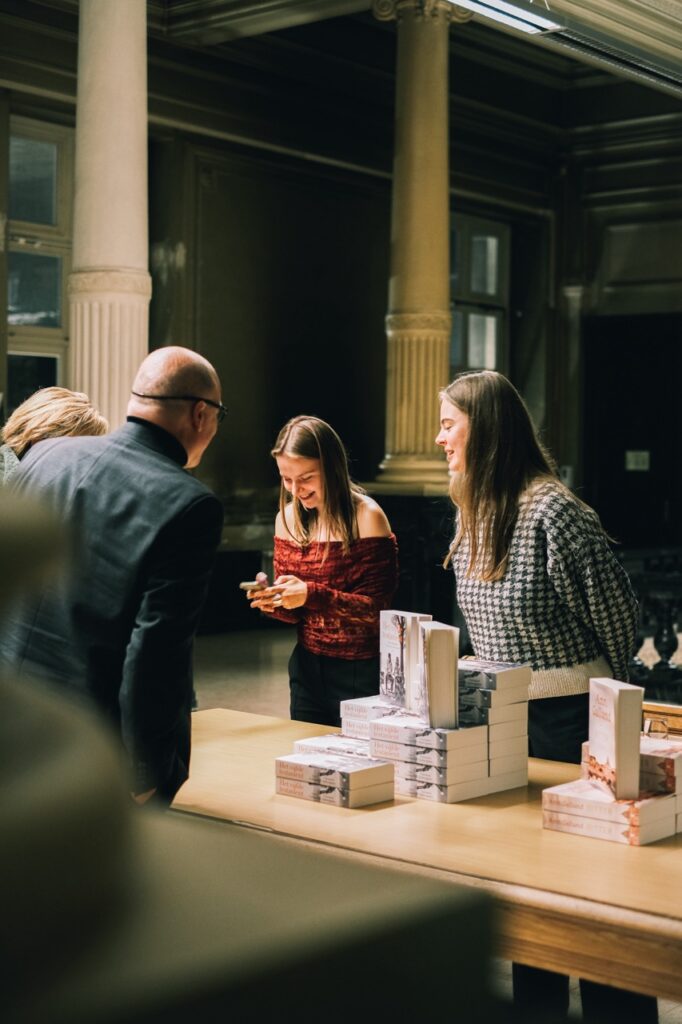
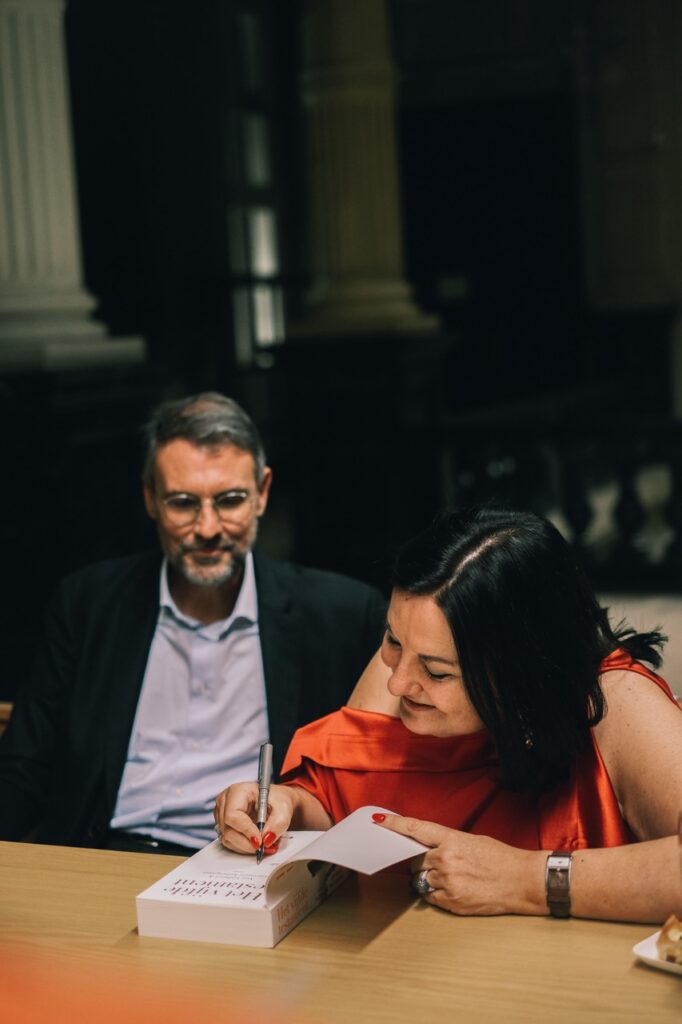

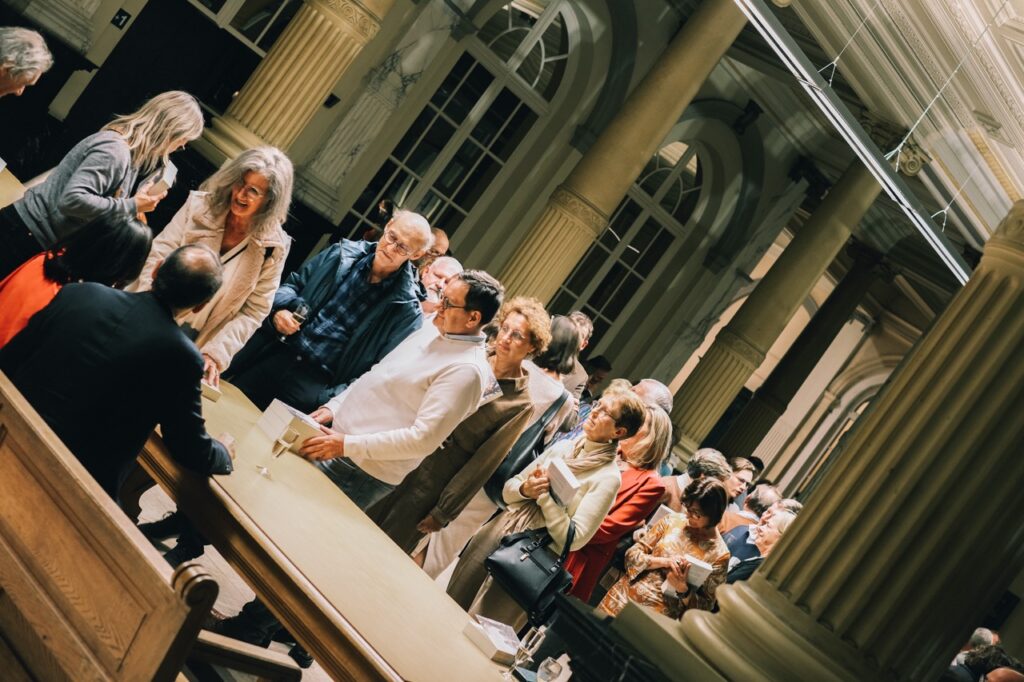
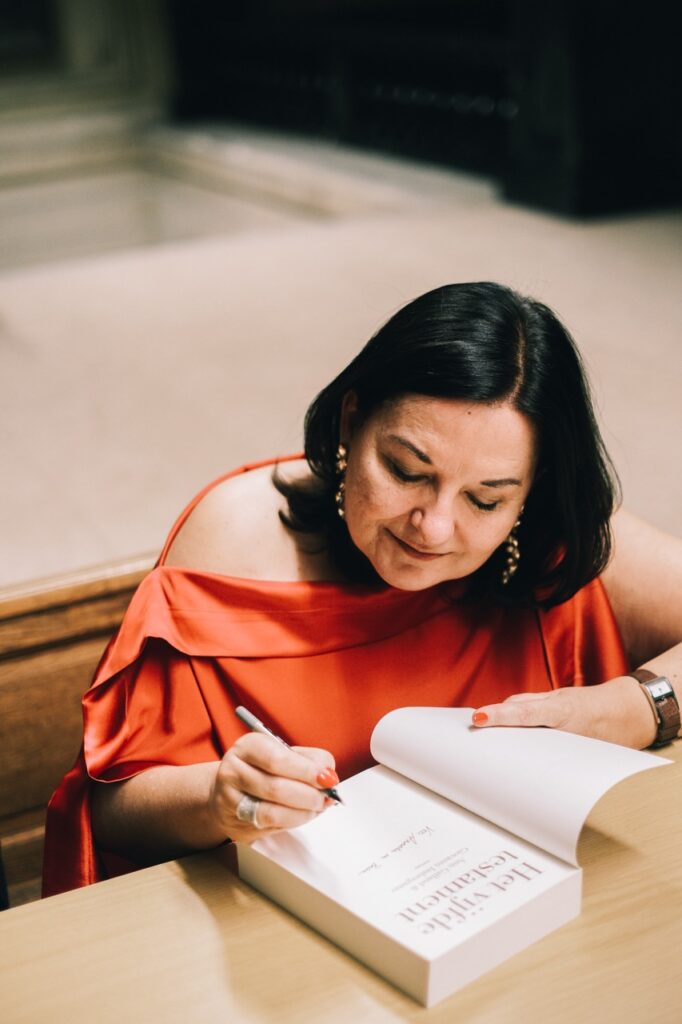
Closing time
Giovanni talking to our editor Sam about… well, let’s guess… the Italian manuscript being ready, and looking forward to seeing our book being published in the beautiful language of Dante Alighieri.
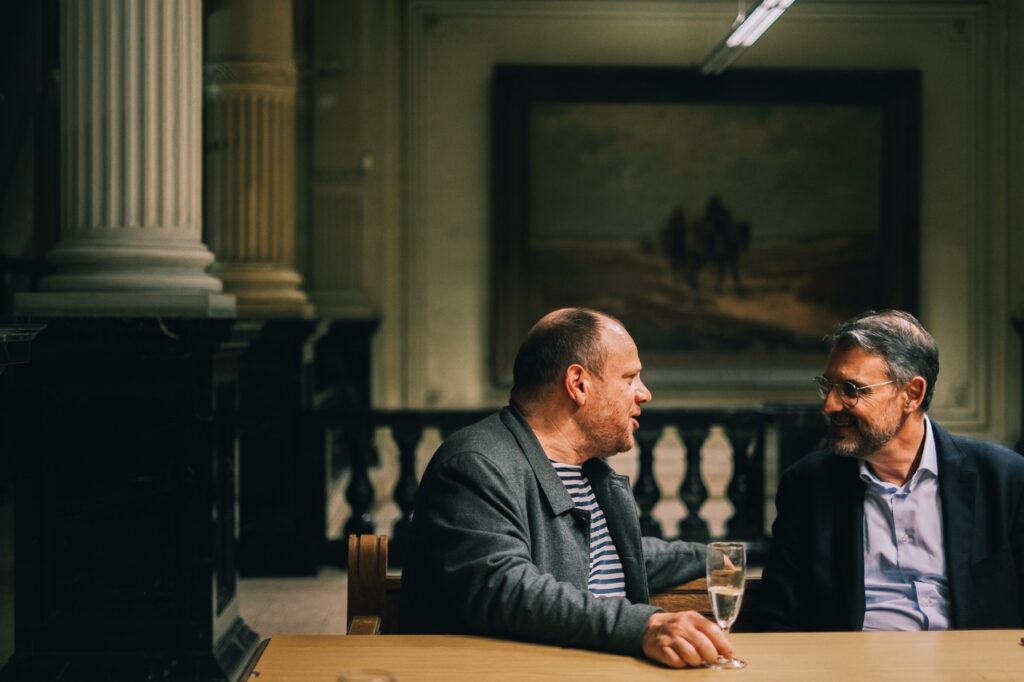
(Photo courtesy of Annelies Bearelle)
